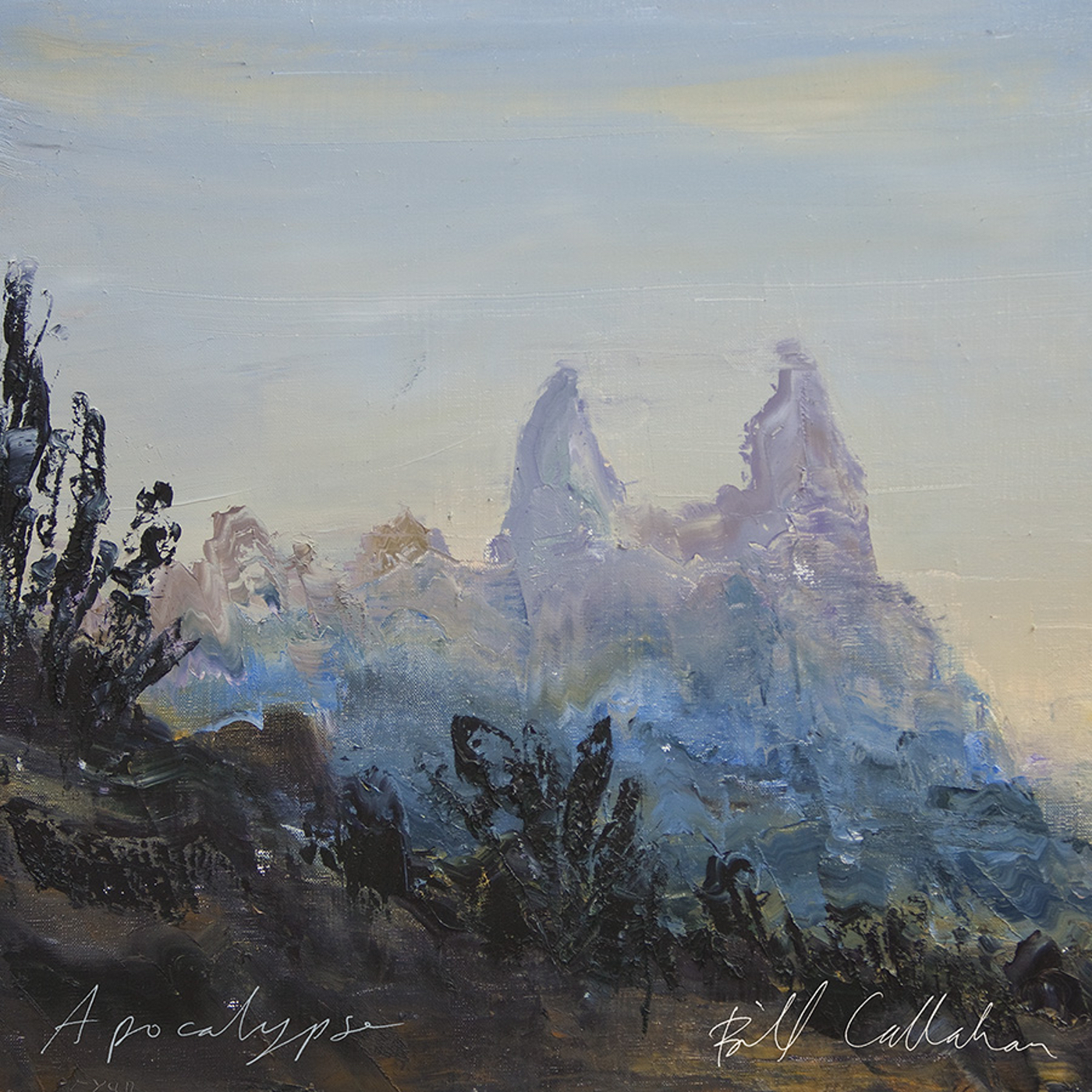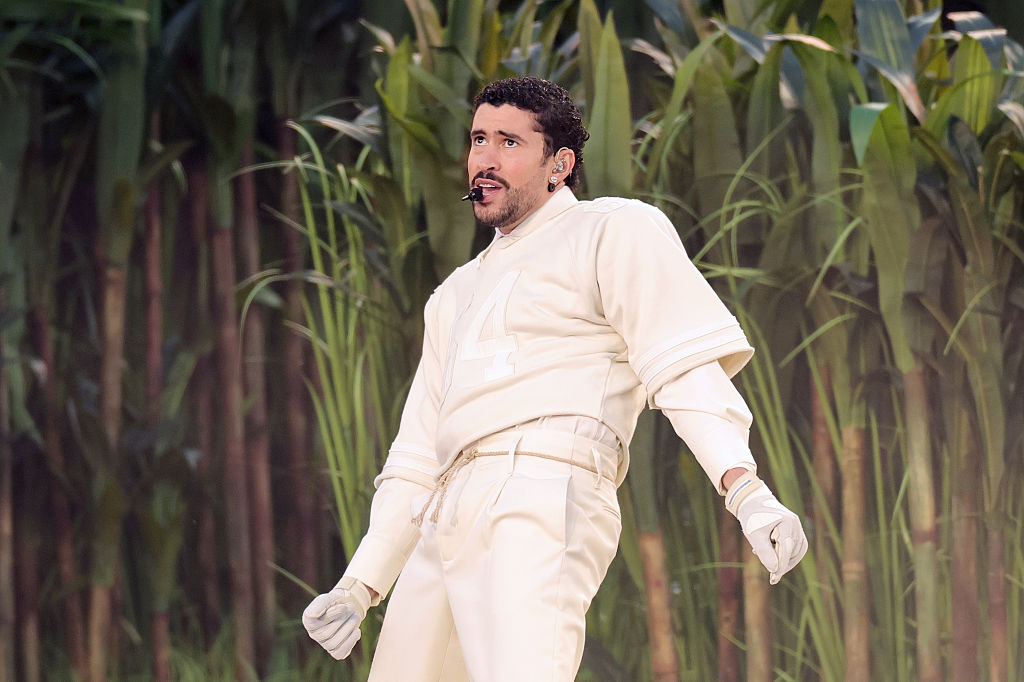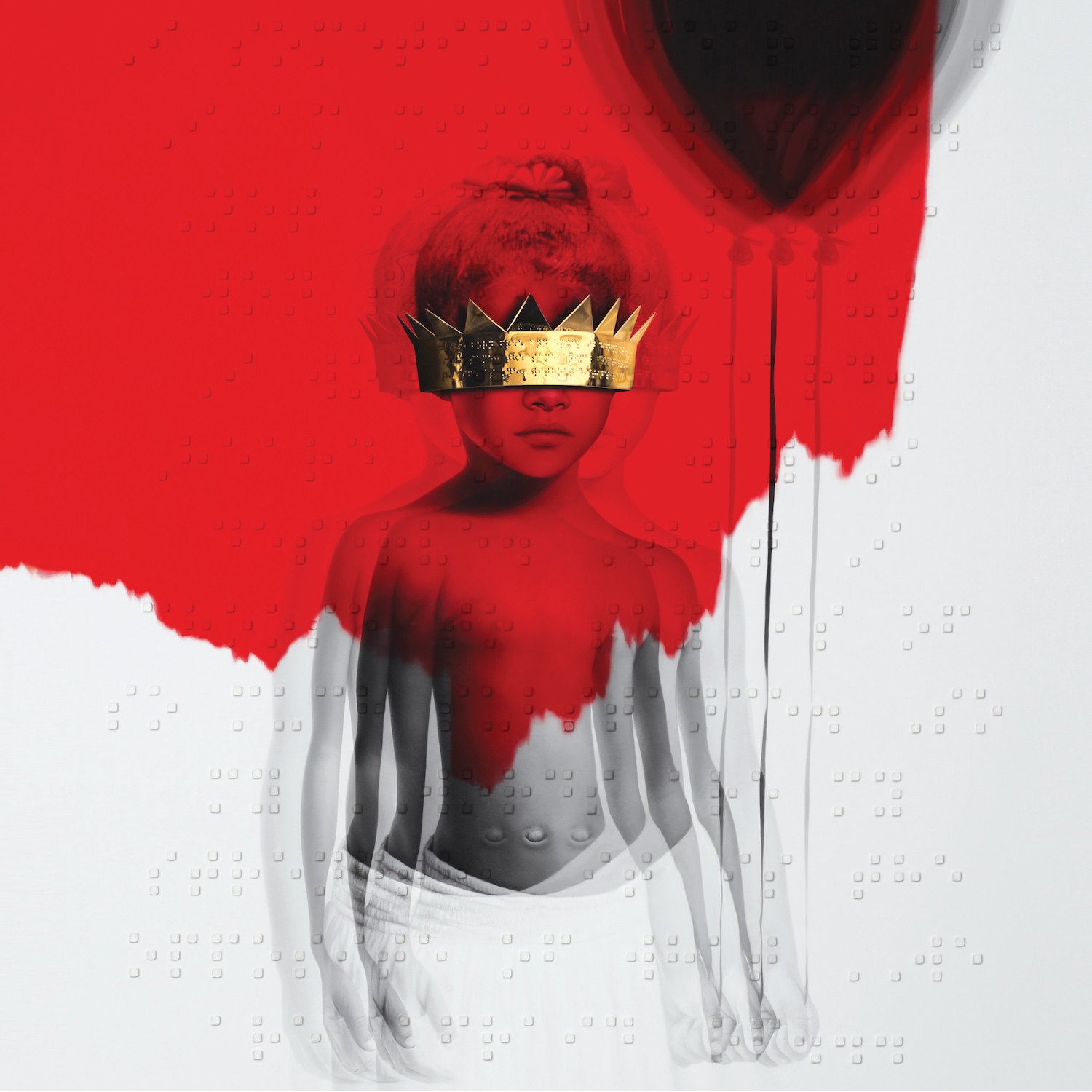- Drag City
- 2011
"This record makes us wonder what has really happened in the last 100 years. And what will happen in the next 10." It's sobering to read this, from Drag City's blurb promoting Bill Callahan's Apocalypse, and to register that the album came out 10 years ago today, and to think back on what has transpired here over the past decade. "The soul of your country called and left you a message," the blurb continues. "Seven messages."
Over the course of his career as one of the most celebrated, iconoclastic singer-songwriters in indie rock, Callahan has lived in many cities around the United States. By the time he released Apocalypse in 2011, he had been planted for a few years in Austin, where he remains to this day. His environment clearly made an impression on him. Most of this record plays out in the wide open spaces out West, populated by drovers and drifters and many kinds of creatures. It sounds wide open, too -- a stark contrast to Callahan's prior record, 2009's lush Sometimes I Wish We Were An Eagle. At Sonic Ranch, a resort-like recording studio in the border down of Tornillo, John Congleton captured music as spacious and ambiguous as Callahan's lyrics -- not quiet or minimalist, necessarily, but shorn down to nothing but the essentials.
"The record is about American music as much as it is about American anything else," Callahan told The Rumpus at the time. "That rich period in the ’70s when all the styles were converging in a loving way. The styles are converging in the present day, also, but in a more clinical or unloving way. The current music is mostly like a doctor’s visit. Where you check off the questionnaire about the past and hope they don’t stick a finger up your butt. But back when the Osmonds were making a psychedelic record or soul blended into funk blended into psychedelia it was a pleasanter experience. Hip-hop brought the once radical practice of sampling into the norm. Now bands are trying to play as if they are samplers."
No one could credibly accuse Callahan's band of such a thing. Just listen to the way his whistling and playful wisps of piano, guitar, and flute waft into the space between verses on "Free's," like friendly spirits briefly gathering and dispersing. Note how the rhythm in the violently graceful opening track "Drover" evokes galloping horses and clattering trains, or the way "Riding For The Feeling" unfolds like a series of elongated sighs. To the extent such barebones arrangements allow, Apocalypse pulls off that loving convergence of sounds, weaving in bits of jazz and folk and country and gospel and, in that noisily stomping "America!" backbeat, unruly rock 'n' roll. "A lot of America was founded on dreams of the unknown," he said in that same Rumpus interview. With this fluid yet meticulously refined music, Callahan successfully evoked that old mysterious frontier.
But this is a Bill Callahan album, and on Bill Callahan albums the lyrics are of paramount importance. "The apocalypse is the end of the world, but apocalypse is just a revelation -- a revelation can be the end of the world, where your whole world dies and your new world is revealed," he explained to The Quietus a decade ago. "It's not just about the end of the world, it’s about the world we live in." Consensus suggests Apocalypse is Callahan's treatise on the United States: a nation where you can't always tell the difference between weeds and flowers, where you may be derided for things you don't believe and lauded for things you did not do, where "the lucky suckle teat" and "others chaw pig knuckle meat." On this website, T. Cole Rachel once called it "a quiet dismantling of various American mythologies." If the album represents his epiphany about this country, and possibly its downfall, he's far too cagey to lay it all out for us in plain English. You have to piece the meaning together out of moods and allegories and Callahan's delivery -- say, the way his droll baritone draws out the word "rose" every time he utters, "The curtain rose and burned in the morning sun." Like the book of Revelation, Apocalypse deals in grandiose symbols that can be difficult to decode, and this text interprets itself less often than John the Apostle ever did.
What you take from Callahan's songs might say more about you than it does him. They may or may not represent his own conclusions, but they function more like prompts for the listener's own reflection -- songwriting as Socratic dialogue. He once explicitly invited multiple understandings of the album's opening line, "The real people went away/ But I'll find a better way someday," which could just as easily be about the oppression of indigenous people or a they-don't-make-'em-like-they-used-to lament about America going soft, among other interpretations. Plus, on that song he's singing in character as a cowboy driving steers across the dusty plains, so who knows how closely his own perspective aligns with the refrain, "One thing about this wild, wild country/ It takes a strong, strong, it breaks a strong, strong mind/ And anything less, anything less makes me feel like I'm wasting my time." The only thing you can know for sure is where your heart and mind end up after the song sends them reeling.
Twice on Apocalypse Callahan definitely seems to be singing from his own experience, both times situated on hotel beds alone with the TV on -- the life of a touring musician, de-glamorized once and for all. On the plaintive and adrift "Riding With The Feeling" he's playing back demo tapes, trying to find his way back to the shoreline where inspiration meets experience, contemplating the competing urges to flee or stay and be known. On the rambunctious "America!" he's halfway around the world watching David Letterman, wishing he could fly back home immediately, shrugging off a century of misguided wars with a smirk: "Well, everyone's allowed a past they don't care to mention." The former could be a thesis on American restlessness, the way we leave home chasing some intangible fulfillment at the cost of our roots. The latter is just as ripe for dissection: When Callahan calls back to the military service of songwriting forebears like Kris Kristofferson and Johnny Cash and then quietly admits, "I never served my country," is he implying he's better or worse off for it?
On a lesser album, "America!" or "Riding For The Feeling" would be an obvious centerpiece. On Apocalypse every song feels that deep and momentous, be it "Baby's Breath," a divorce allegory about reaping and sowing, or "One Fine Morning," a secular spiritual about quite literally becoming the road future travelers will trod. (It's hard to say which part of that song is funnier: When Callahan's dying narrator exclaims, "Hey! No more drovering!" or when he ends by passionately crooning the album's catalog number, "DC 4 5 0," twice over.) In one of those clarifying gestures that only makes things more confusing, Callahan has repeatedly identified a moment on "Universal Applicant" as the album's turning point from dark to enlightenment: Stranded and starving, his character shoots a flare gun into the sky -- manifested with some unforgettable onomatopoeia from Callahan -- and then the flare lands in his boat and burns it up, to the nearby animals' amusement. As the tension gives way to a languorous swoon, he concludes, "And the punk and the lunk and the drunk and the skunk and the hunk and the monk in me all sunk." It's one of many sequences on Apocalypse that will have you shouting WHAT?! and YES! and holding those reactions in tension until you inevitably run it back.
At the time of the album's release, several interviewers noted how Callahan had allowed his songs to sprawl this time around. Six of seven tracks surpass the five-minute mark, and each of them makes those minutes count, often accentuating Callahan's words with purposeful pauses in between. But if any one track sums up Apocalypse, Callahan, and America at large, it's the album's shortest. Even at just three and a half minutes, "Free's" contains multitudes. Every line is loaded, especially the simplest ones. Perhaps the title most of all; that apostrophe and s are saying an awful lot. In 2011, the song felt resonant and prophetic and uncomfortably probing. A decade further into this country's glorious and sordid history, it might as well be our national anthem. "I'm standing in a field/ A field of questions, as far as the eye can see," Callahan begins. "Is this what it means to be free? Or is this what it means to belong to the free?"






